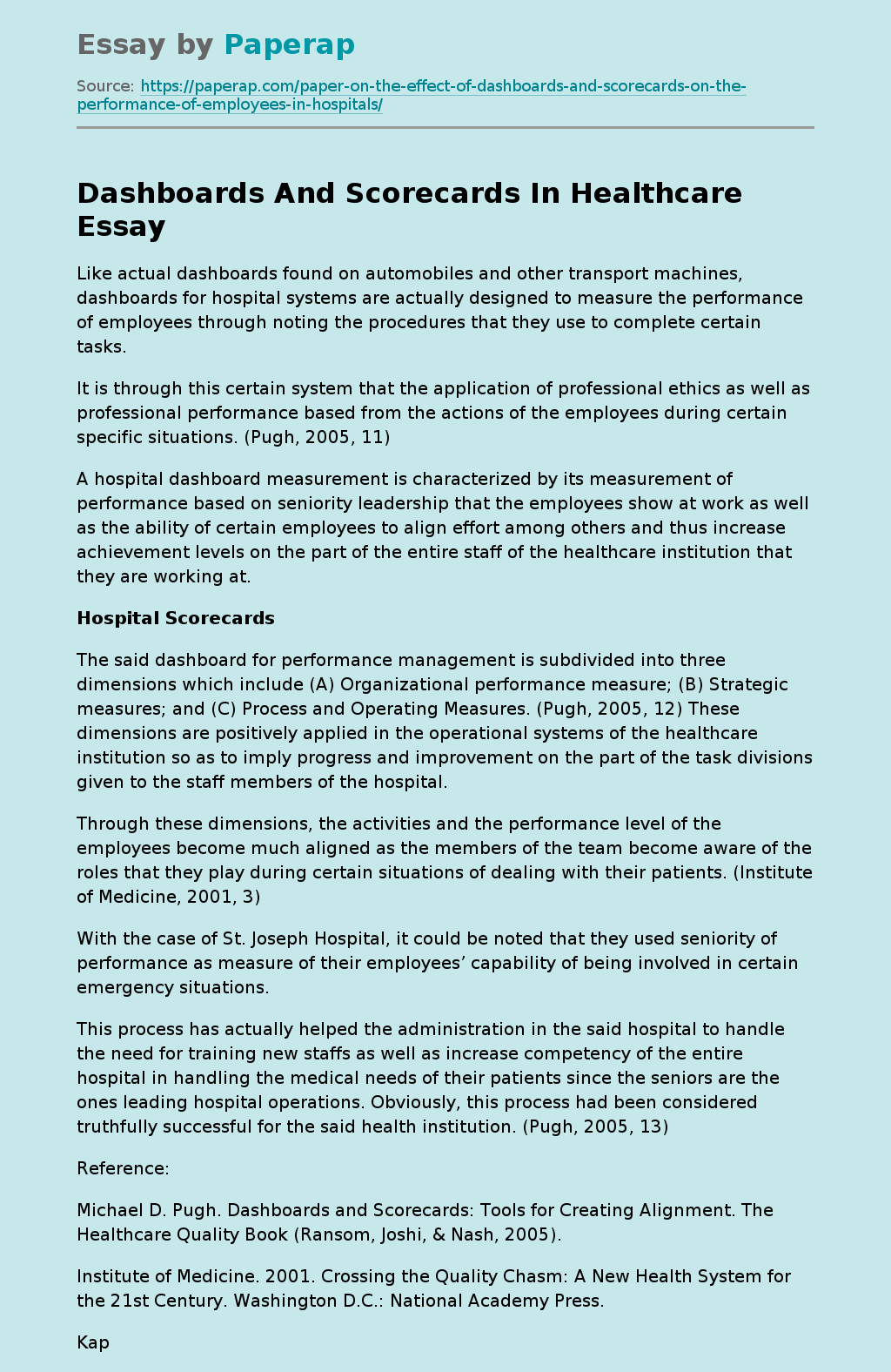Dashboards And Scorecards In Healthcare
Like actual dashboards found on automobiles and other transport machines, dashboards for hospital systems are actually designed to measure the performance of employees through noting the procedures that they use to complete certain tasks.
It is through this certain system that the application of professional ethics as well as professional performance based from the actions of the employees during certain specific situations. (Pugh, 2005, 11)
A hospital dashboard measurement is characterized by its measurement of performance based on seniority leadership that the employees show at work as well as the ability of certain employees to align effort among others and thus increase achievement levels on the part of the entire staff of the healthcare institution that they are working at.
Hospital Scorecards
The said dashboard for performance management is subdivided into three dimensions which include (A) Organizational performance measure; (B) Strategic measures; and (C) Process and Operating Measures. (Pugh, 2005, 12) These dimensions are positively applied in the operational systems of the healthcare institution so as to imply progress and improvement on the part of the task divisions given to the staff members of the hospital.
Through these dimensions, the activities and the performance level of the employees become much aligned as the members of the team become aware of the roles that they play during certain situations of dealing with their patients. (Institute of Medicine, 2001, 3)
With the case of St. Joseph Hospital, it could be noted that they used seniority of performance as measure of their employees’ capability of being involved in certain emergency situations.
This process has actually helped the administration in the said hospital to handle the need for training new staffs as well as increase competency of the entire hospital in handling the medical needs of their patients since the seniors are the ones leading hospital operations. Obviously, this process had been considered truthfully successful for the said health institution. (Pugh, 2005, 13)
Reference:
Michael D. Pugh. Dashboards and Scorecards: Tools for Creating Alignment. The Healthcare Quality Book (Ransom, Joshi, & Nash, 2005).
Institute of Medicine. 2001. Crossing the Quality Chasm: A New Health System for the 21st Century. Washington D.C.: National Academy Press.
Kaplan, R.S. and D.P. Norton. 1992. The Balanced Scorecard-Measures that Drive Performance. Harvard business Review. (1996). Boston: HBS Press.
Dashboards And Scorecards In Healthcare. (2019, Dec 05). Retrieved from https://paperap.com/paper-on-the-effect-of-dashboards-and-scorecards-on-the-performance-of-employees-in-hospitals/

